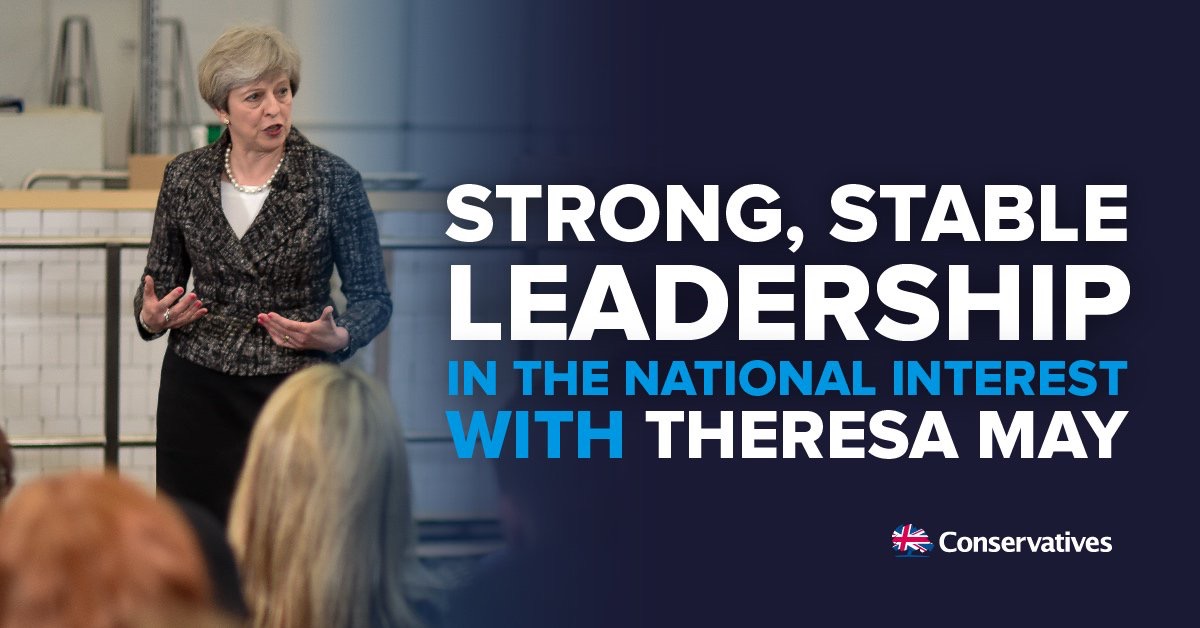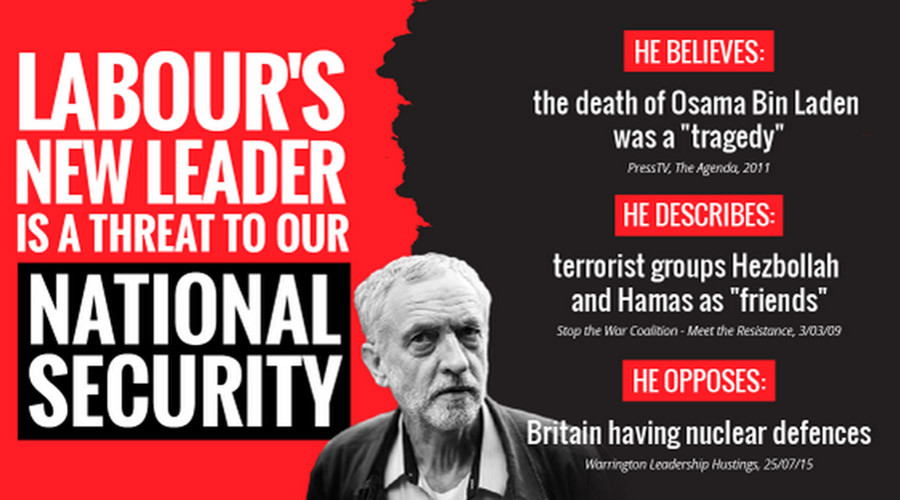 |
| "Let's give me the power and crush these socialist friends of Corbyn." |
Firstly, May has had so far no problems in parliament with Brexit related legislation. Since the Labour leader, Jeremy Corbyn, pledged not to disturb in Brexit-related issues, the likely doubts about this topic dissipated. Moreover, we shall remember that there was a conservative majority in the House of Commons, not suspect of being remainers. Therefore, calling an election to secure a pro-Brexit majority made no sense since there was no real opposition to this process in parliament.
Secondly, we only have to look at the numbers of the different polls published in April to grasp a quite different, and worldly, reason to call this election. At the time May decided the ballots, the Conservative Party was leading in all the polls by a margin that goes between 15 and 20 points over the Labour Party. This, in a first-past-the-post system as the British, would mean an outstanding overall majority for the Tories. With these numbers, one could easily imagine lots of MPs, advisors and even the PM being tempted to call the election. Who could resist such temptation?
 |
| May has taken a central role in the Tory campaign, leaving Brexit or the local candidates few room. |
Besides, when the Tories launched their campaign, they confirm this suspicion. The Conservative Party chose to campaign in a presidential style, giving Theresa May the whole protagonist role. Brexit didn't appear anywhere in the headlines. This is the key that signals the real intention behind the snap election. Given that the opposition leader, Labour's Jeremy Corbyn, was trailing far behind May in all polls, a presidential profile signalled the real intention: crushing the Labour Party in parliament and assuring a huge Tory majority for five more years. Corbyn was supposed to be the main weakness of Labour, and the Tories were up to use it.
 |
| This is how conservative media and the Tory party has portraited Corbyn since he was elected Labour's leader. |
However, calling an election to secure a huge majority and take advantage of the polling figures doesn't always work. There are plenty of examples of governments that wanted to take profit of favourable opinion polls but they found no success in the ballot. For example, Catalonia 2012 and Quebec 2014 or the UK in 1923 and in 1974.
Today, there are only five days to go and everything could happen.
In following articles, I'll analyse the surprising campaign.
No comments:
Post a Comment